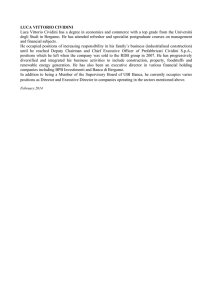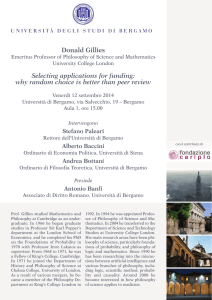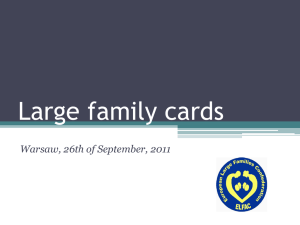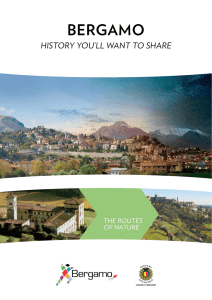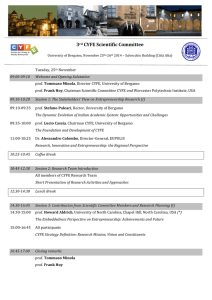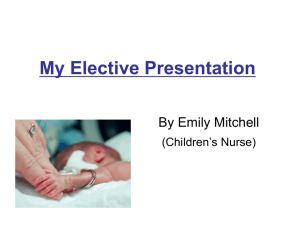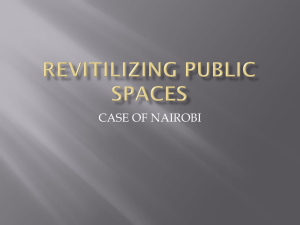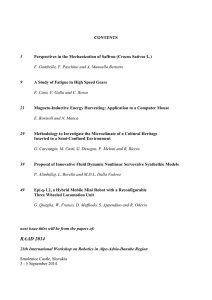Presentazione standard di PowerPoint
advertisement
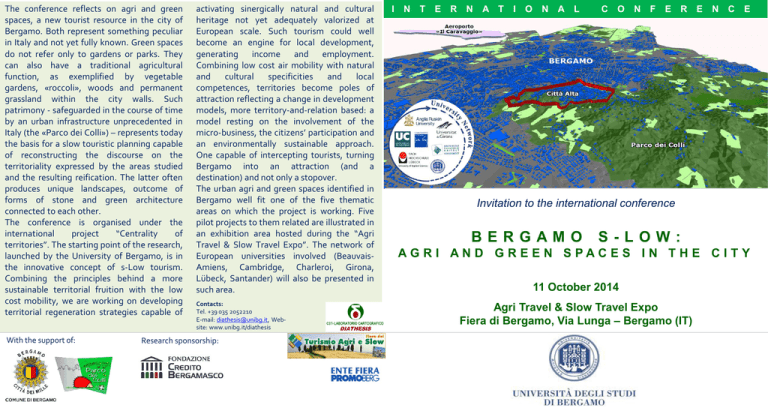
The conference reflects on agri and green spaces, a new tourist resource in the city of Bergamo. Both represent something peculiar in Italy and not yet fully known. Green spaces do not refer only to gardens or parks. They can also have a traditional agricultural function, as exemplified by vegetable gardens, «roccoli», woods and permanent grassland within the city walls. Such patrimony - safeguarded in the course of time by an urban infrastructure unprecedented in Italy (the «Parco dei Colli») – represents today the basis for a slow touristic planning capable of reconstructing the discourse on the territoriality expressed by the areas studied and the resulting reification. The latter often produces unique landscapes, outcome of forms of stone and green architecture connected to each other. The conference is organised under the international project “Centrality of territories”. The starting point of the research, launched by the University of Bergamo, is in the innovative concept of s-Low tourism. Combining the principles behind a more sustainable territorial fruition with the low cost mobility, we are working on developing territorial regeneration strategies capable of With the support of: activating sinergically natural and cultural heritage not yet adequately valorized at European scale. Such tourism could well become an engine for local development, generating income and employment. Combining low cost air mobility with natural and cultural specificities and local competences, territories become poles of attraction reflecting a change in development models, more territory-and-relation based: a model resting on the involvement of the micro-business, the citizens’ participation and an environmentally sustainable approach. One capable of intercepting tourists, turning Bergamo into an attraction (and a destination) and not only a stopover. The urban agri and green spaces identified in Bergamo well fit one of the five thematic areas on which the project is working. Five pilot projects to them related are illustrated in an exhibition area hosted during the “Agri Travel & Slow Travel Expo”. The network of European universities involved (BeauvaisAmiens, Cambridge, Charleroi, Girona, Lübeck, Santander) will also be presented in such area. Contacts: Tel. +39 035 2052210 E-mail: diathesis@unibg.it, Website: www.unibg.it/diathesis Research sponsorship: I N T E R N A T I O N A L C O N F E R E N C E Invitation to the international conference BERGAMO S-LOW: AG R I AN D G R E E N S PAC E S I N T H E C I T Y 11 October 2014 Agri Travel & Slow Travel Expo Fiera di Bergamo, Via Lunga – Bergamo (IT) B E R G A M O S - L O W : A G R I A N D S P A C E S I N T H E C I T Y 14.3017.00 Session II Representations of urban agri and green spaces Chairman FEDERICA BURINI, University of Bergamo 9.00 Welcome Opening speeches MAURIZIO MARTINA Italian Minister for Agricultural, Food and Forestry Policies 10.00 Introductory remarks STEFANO PALEARI Relatori: GLORIA BORDOGNA, Institute for Electromagnetic Sensing of the Environment– CNR, Milan Rector of the University of Bergamo With the contribution of JOHN F. ALBORANTE Sales & Marketing Manager di Ryanair P R O G R A M G R E E N 10.3013.00 Session I Urban green spaces, a slow touristic agri resource Chairman EMANUELA CASTI University of Bergamo Technologies and agriculture: the experience of the Space4Agri applied to Bergamo as a case study VASIL MARINOV, University of Sofia “St. Kliment Ohridski” The representation of urban green spaces. The case of Sofia MARCELLA SCHMIDT DI FRIEDBERG, University Milano-Bicocca The representation of urban agri and green spaces: the Japanese satoyama Speakers: RENATO FERLINGHETTI, University of Bergamo Urban agriculture preservation in Bergamo CHRIS WILBERT, Anglia Ruskin University of Cambridge Technonatures: urban green spaces in Cambridge ROBERTO GAMBINO, Politecnico di Torino Preserve and innnovate: the city and its green spaces Debate 17.0018.00 Conclusions JACQUES LÉVY, Ecole Polytechnique Fédérale de Losanna MARIA ROSA RONZONI, University of Bergamo Debate EMANUELA CASTI, University of Bergamo Simultaneous translation (Italian-English) will be provided
